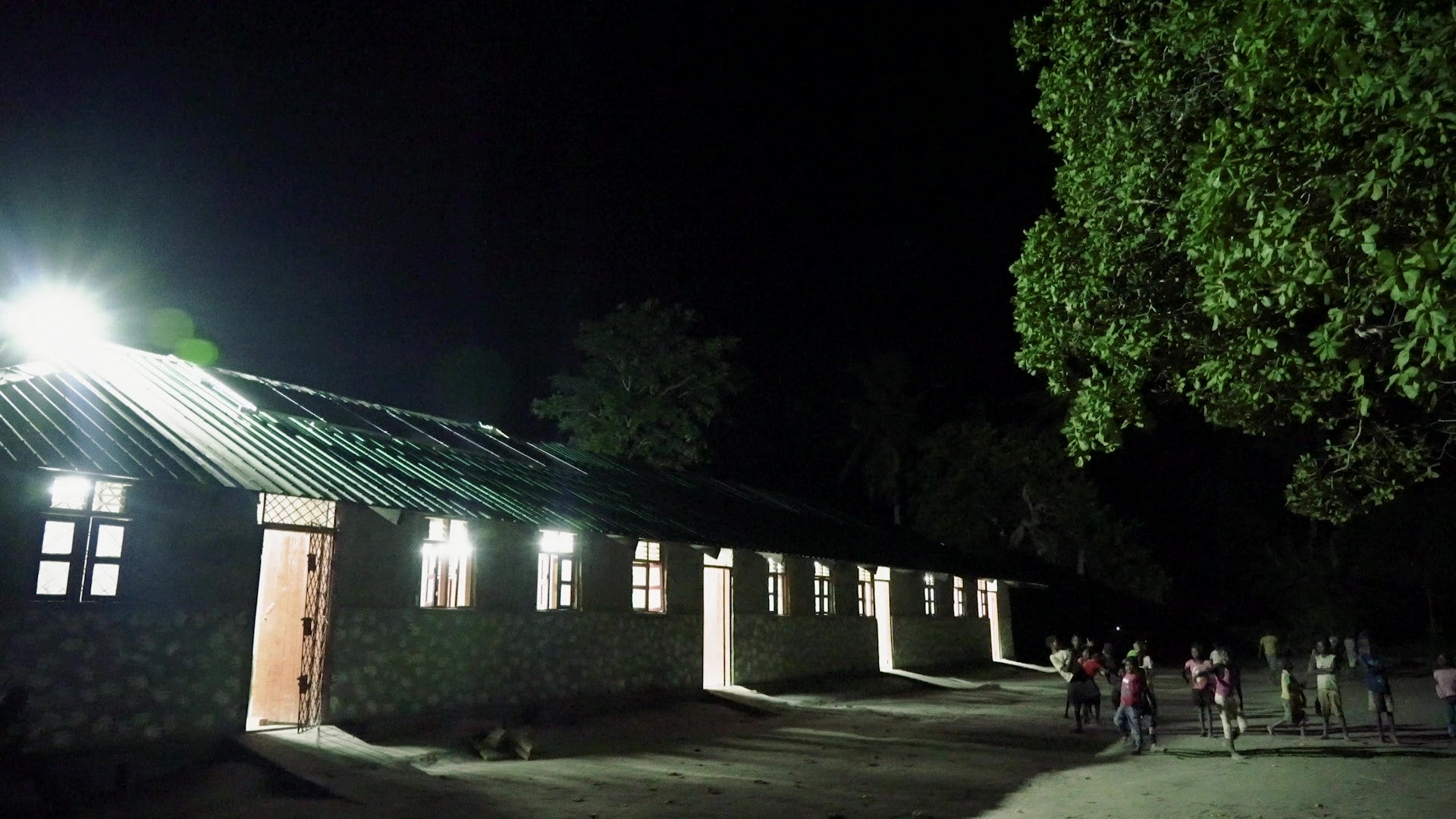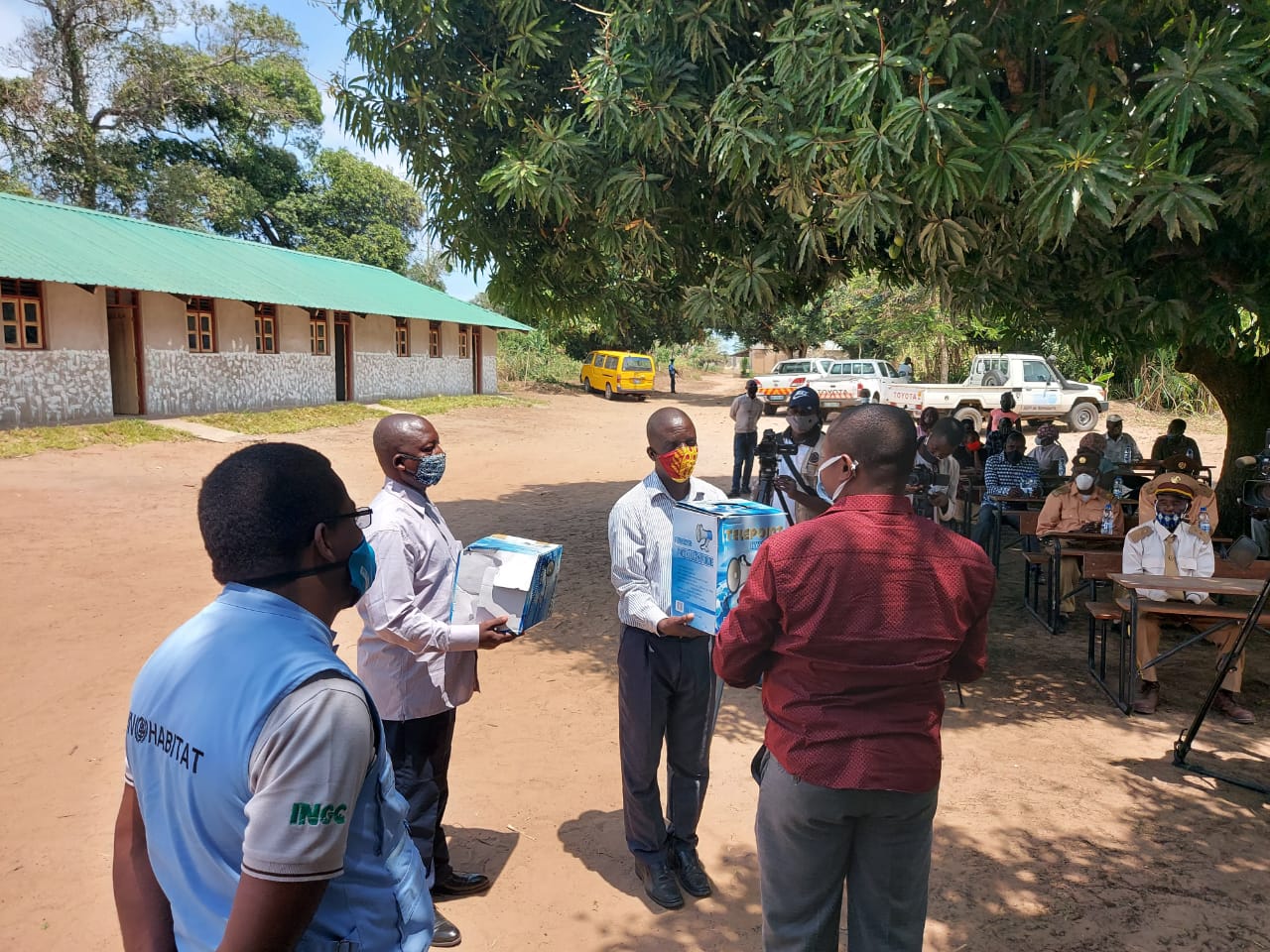Beira, Mozambique 5 November 2020-- Primary Schools of Mozoão and Ronda were the recent beneficiaries of solar power panels, a result of a partnership between UN-Habitat and other organisations keen to offer renewable energies to learners in the disaster prone areas of the Southern African nation.
This project was executed with funding from Energia de Portugal – EDP, support from Swiss Solar and in partnership with the Ministry of Education and Human Development and the National Institute for Disaster Management (INGC).
UN-Habitat started implementing it in 2019 and it sought new solutions using renewable energies to strengthen school resilience, access to education in remote areas and disaster preparedness in communities of Namacurra District.
Mozambique ranks third among African countries most vulnerable to disasters such as droughts, floods and cyclones. These affect communities and schools causing the disruption of children’s education and other essential services for the communities.

This pilot project has the objective to provide disaster resilience to schools with an efficient alert system and to enable communities to access a better-quality education through the implementation of a renewable energy system.
The two schools selected for this project were rebuilt between 2017 and 2018 with a resilient methodology in partnership with UNICEF, allowing 1 280 children access to a safe educational environment and providing the community with a haven. With the solar panels, they have now access to electricity, allowing these schools located in remote areas in flood and cyclone affected areas in Mozambique to be fully resilient and sustainable.
Having electricity in the classrooms allowed the school to introduce night classes, increasing the attendance rates, as the Director of Mazoão School, Baião Dias, confirms: “ Our goal in the previous years was to have at least 450 and 500 children enrolled in the school. Right now, we are close to reaching 700 students attending”.
In addition, the schools were equipped with Early Warning Systems through a participatory process with local communities and partners. These systems have the purpose to improve the community preparedness to disaster and ensure child safety. They consist of creating School Committees for Disaster Risk Management that will allow a rapid dissemination of information and warning signs in case of cyclones and floods.
“The committee is responsible to inform the students, and the population that the weather is bad. The population has then to prepare and move from a risky place to a safe area” says Félix Soares, member to the Committee of Mazoão School.
Access to electricity and Early Warning Systems are linked as electricity strengthens the communication systems of schools, which is the foundation of an efficient Early Warning System, by allowing the school members to charge their cell phones for example. The school lights also have a positive impact on the community as it was the case in Mazoão School, illuminating the neighbourhood at night and increasing security for the community.
This pilot initiative is an example of how Sustainable Development Goals are linked as it allows giving access to education in remote areas and building sustainable communities by using clean and affordable energies in the scope of climate action. UN-Habitat will continue to implement and support initiatives like this in Mozambique to empower schools and communities in disaster affected areas.
